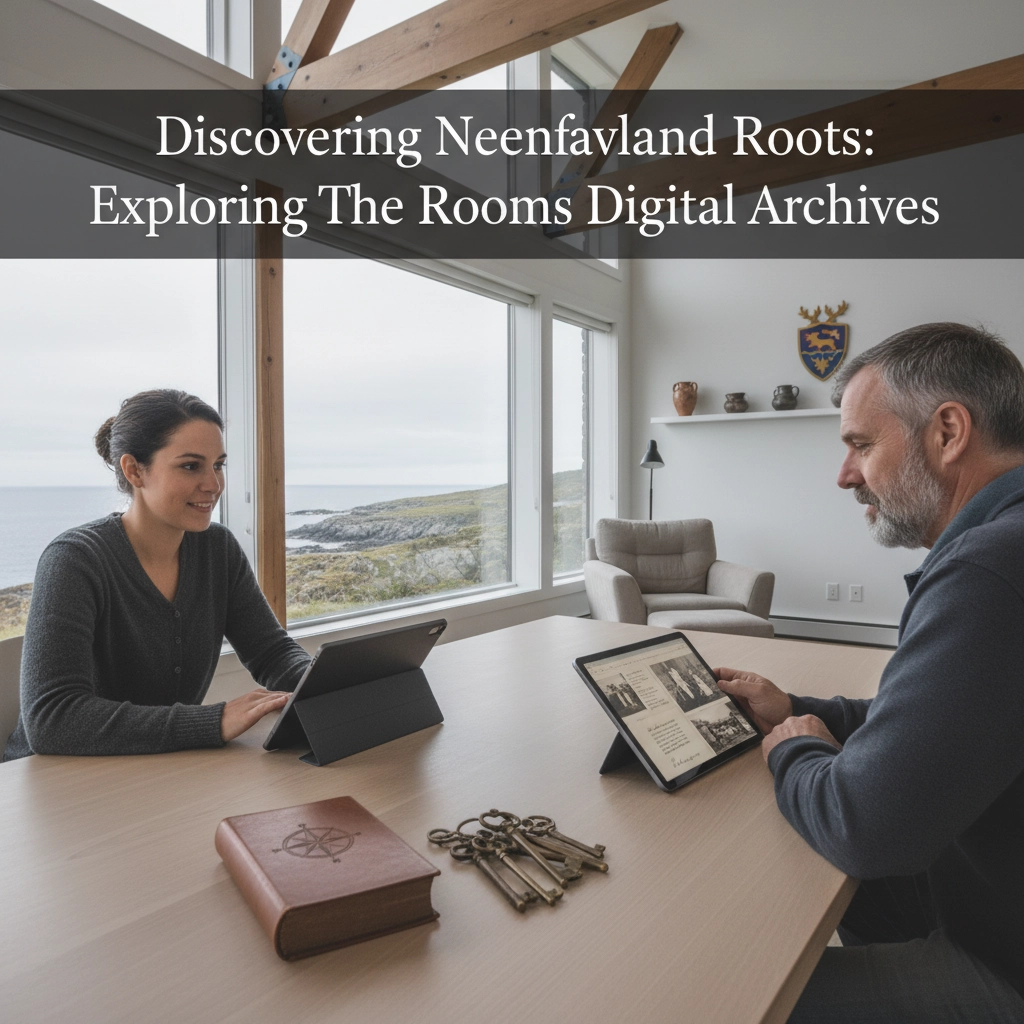Welcome to Web Find Wednesday! Today we're diving into one of Atlantic Canada's best-kept genealogy secrets: a treasure trove that's been quietly revolutionizing Newfoundland family history research. Whether you're tracing your roots back to the Rock or simply curious about this incredible resource, you're in for a treat.
Meet The Rooms Digital Archives: Newfoundland and Labrador's premier archival institution that's been systematically digitizing centuries of history, making it accessible to researchers worldwide. If you've been struggling to find records for your Newfoundland ancestors, this might just be the game-changer you've been looking for.
Why The Rooms Should Be Your New Best Friend
Here's the thing about Newfoundland genealogy: it can feel like you're searching for a needle in a haystack, especially when you're dealing with isolated communities and unique naming patterns. The Rooms changes all that by bringing together over 400,000 digitized items under one virtual roof.
As Canada's oldest colony, Newfoundland has a rich documentary heritage spanning over 350 years. The challenge has always been accessing these records. The Rooms has tackled this head-on, creating searchable digital collections that you can explore from anywhere in the world.
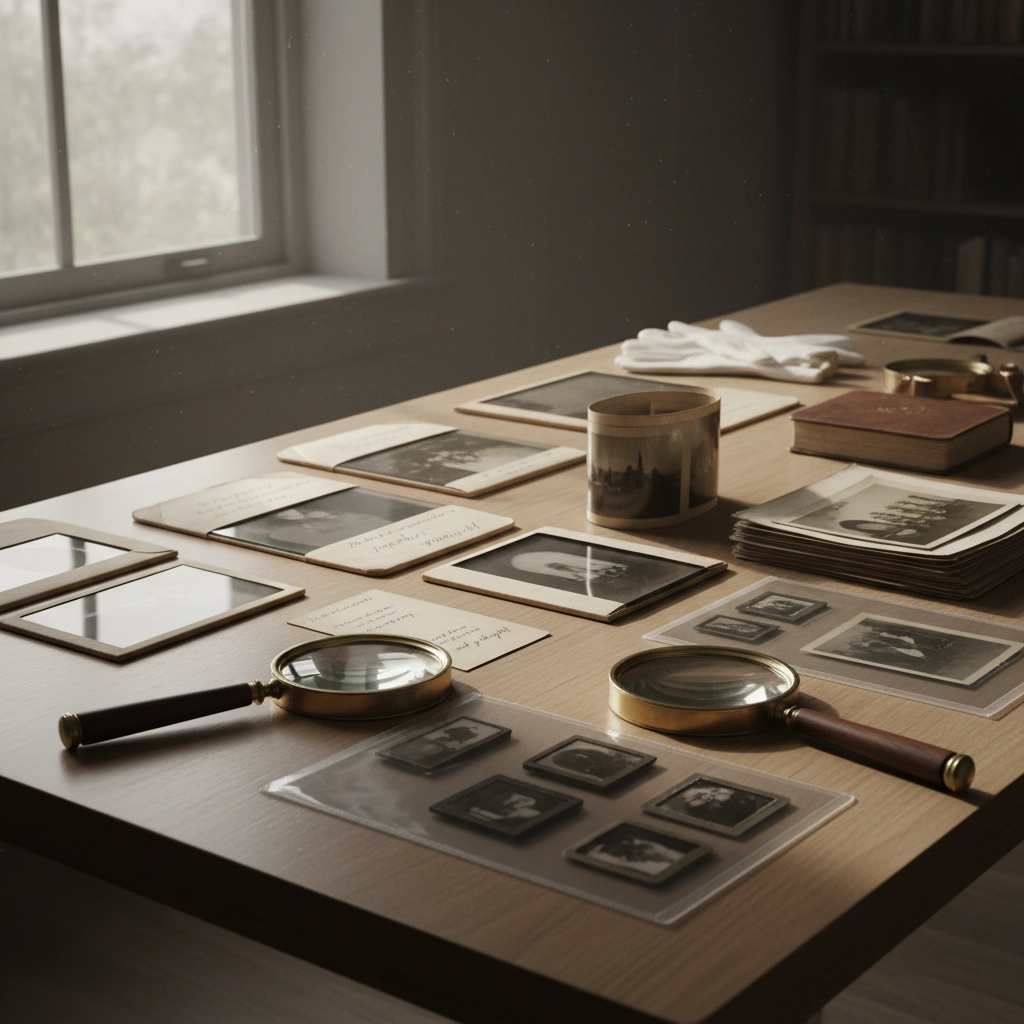
What Makes This Resource Special?
The Photograph Collections Alone Will Blow Your Mind
With more than 400,000 photographic items, including 14,000 glass plate negatives, The Rooms offers an unparalleled visual journey through Newfoundland's past. We're talking tintypes, daguerreotypes, ambrotypes: the whole nine yards. These aren't just random snapshots; they're carefully curated glimpses into community life, family gatherings, and historical moments that could include your ancestors.
Vital Statistics That Actually Help
One of the biggest frustrations in genealogy is hitting that brick wall with vital records. The Rooms has digitized death certificates from 1950 to 1968: that's over 59,000 records that are fully searchable online. While this might seem like a narrow window, it's exactly the bridge many researchers need to connect their living relatives with earlier generations.
Maps and Property Records
The cartographic collection contains over 50,000 maps, plans, and drawings. This isn't just about pretty pictures: these resources help you understand settlement patterns, trace property ownership, and visualize how communities developed over time. If your ancestor lived in a particular area, these maps might show you their neighborhood as it existed generations ago.
Military Heritage and Wartime Stories
For families with military connections, The Rooms is absolute gold. The archives maintain detailed service files for the First Newfoundland Regiment and the Newfoundland Forestry Companies. The "Died in Service" database features approximately 1,800 individual wartime biographies: comprehensive stories that go far beyond just names and dates.
These records often include personal details, service histories, and family information that you won't find anywhere else. If you've wondered about an ancestor's military service, this could be where you finally get the full story.
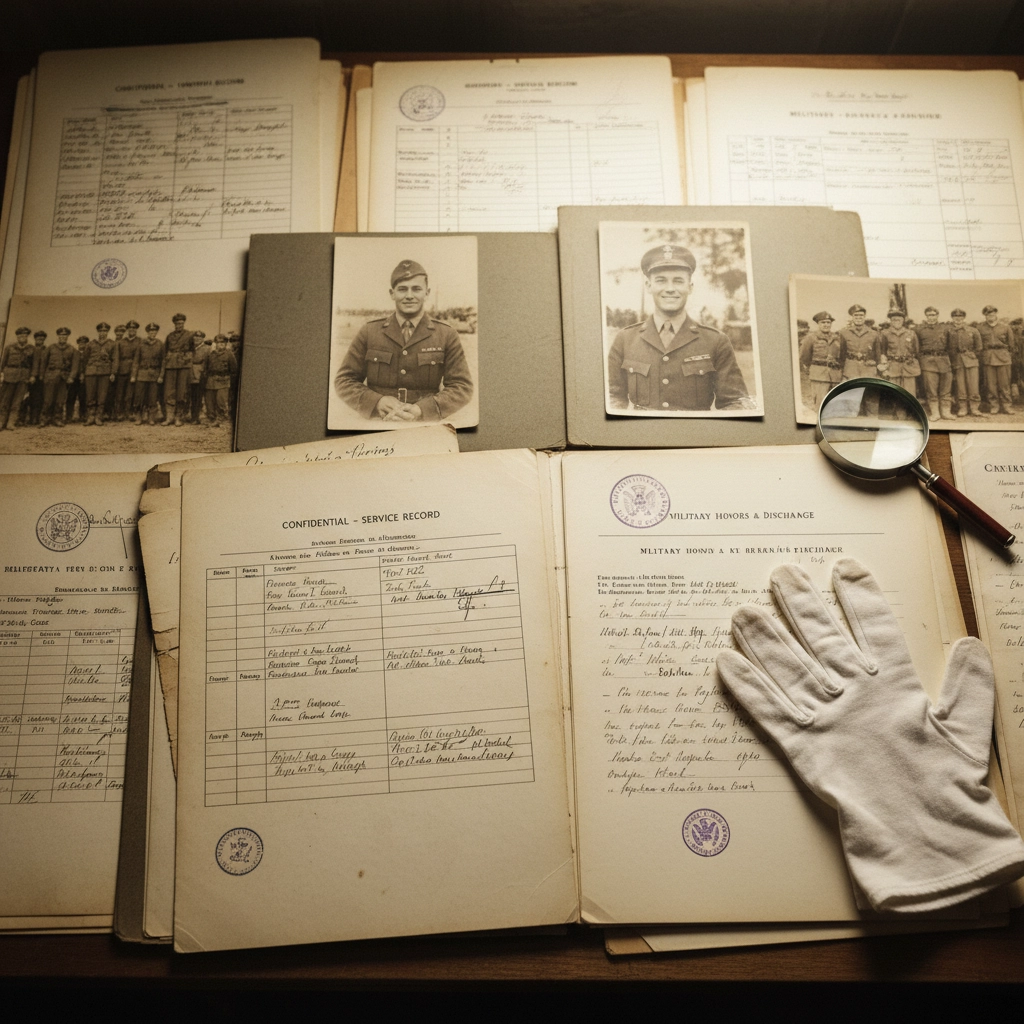
Parish Records: The Genealogist's Secret Weapon
Here's where things get really exciting for family historians. Parish records at The Rooms include baptisms, marriages, and burials dating back to the early 19th century: some baptism records start as early as 1816. These ecclesiastical records often predate civil registration, making them the earliest documented evidence of your family's presence in specific communities.
Don't underestimate the power of these church records. They frequently include details like parents' names, sponsors, and places of origin that can break through those stubborn research roadblocks.
Manuscript Collections and Personal Stories
The manuscripts collection is where you'll find the human stories behind the statistics. Personal journals, diaries, correspondence, and records from community organizations paint a picture of daily life that official documents can't capture. These collections have particular strength in mercantile records related to the Newfoundland fishery: crucial for understanding the economic backbone of many communities.
How to Make The Most of Your Digital Digging
Start Smart, Not Hard
Before you dive into The Rooms' collections, do your homework. Create that family tree on paper first, working backward from yourself through parents and grandparents. Identify the specific gaps you need to fill: this focused approach will save you hours of digital wandering.
Master the Search Functions
The Rooms provides online database searching that lets you search record descriptions and view thousands of digital photographs. Don't just search for names: try variations, nicknames, and even just surnames to cast a wider net. Newfoundland naming patterns can be tricky, so flexibility is key.
Consider the Context
Remember that Newfoundland remained a British colony until 1949. This means some records might be organized differently than you'd expect from other Canadian provinces. Understanding this historical context will help you navigate the collections more effectively.
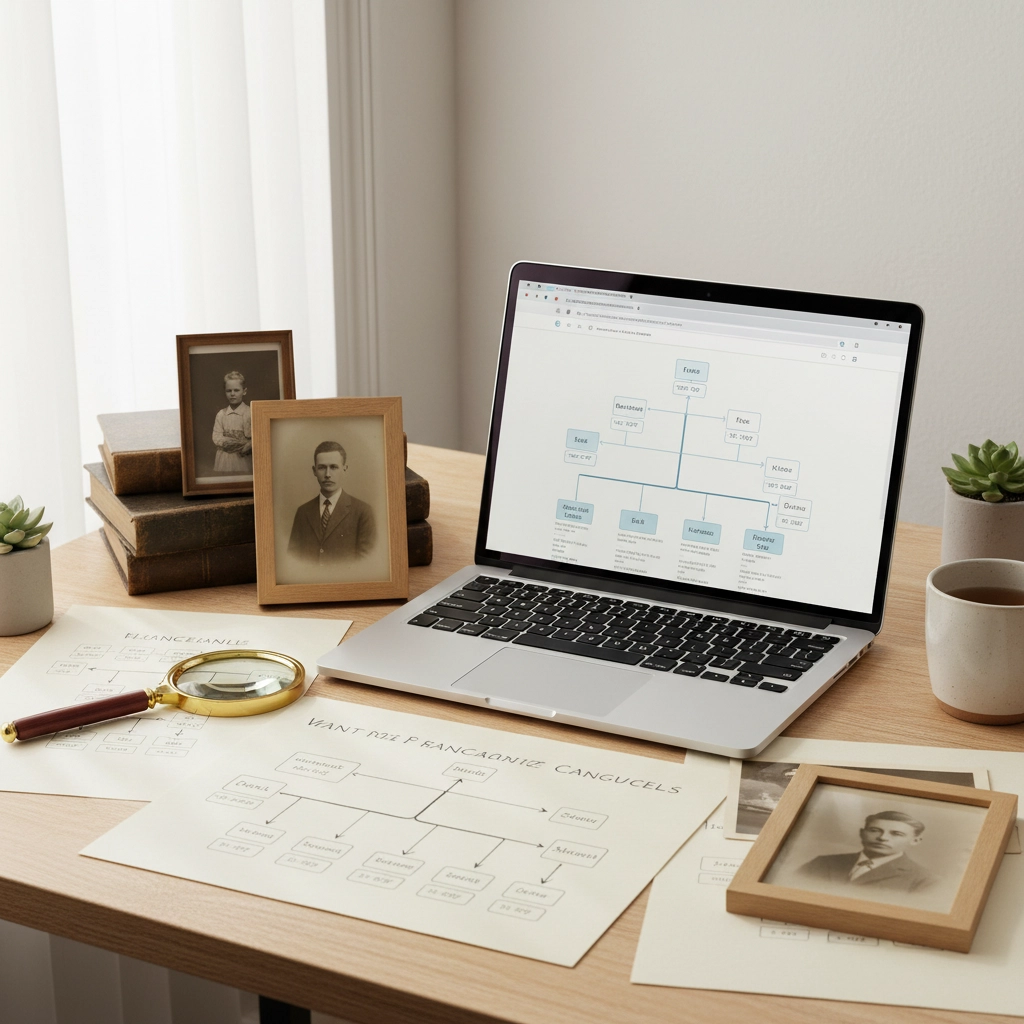
Getting Hands-On Help
While the digital collections are fantastic for remote research, don't overlook the value of connecting with the experts. The Rooms offers permanent Researcher Registration for just $10 (included with membership), giving you access to reference staff who know these collections inside and out.
The Archives Reference Room operates Monday through Saturday, with extended hours on Wednesdays until 9:00 PM. If you're planning a research trip to St. John's, this is your command center.
Connect with a Local Expert
Speaking of experts, here's something exciting to look forward to: In our upcoming October podcast episode, I'll be sitting down with Craig Morrisey of More You See Genealogy, a talented researcher who's based in Newfoundland and works directly at The Rooms. Craig brings a unique perspective: he understands both the researcher's needs and the insider knowledge of how these collections work.
This interview promises to be packed with practical tips, hidden gems within the collections, and insights that only come from working with these records day in and day out. Craig will share strategies for maximizing your research time, navigating the more challenging aspects of Newfoundland genealogy, and making connections you might never have considered.
If you're serious about Newfoundland research, this podcast episode will be essential listening. We'll dive deep into specific research strategies, discuss common pitfalls to avoid, and explore how The Rooms fits into the broader landscape of Atlantic Canadian genealogy.
Beyond the Obvious Records
Here's a pro tip: Don't just focus on the obvious genealogical records. The Rooms' government archives contain immigration documents, land grants, court records, and other official interactions that can illuminate your family's story in unexpected ways. Sometimes these "secondary" sources provide the breakthrough information that traditional vital records can't offer.
The institution operates under the Rooms Act 2005, which ensures both official government records and significant private records relevant to provincial history are preserved. This comprehensive mandate means you might find your ancestor mentioned in surprising contexts: business dealings, community involvement, or legal proceedings that add depth to their story.
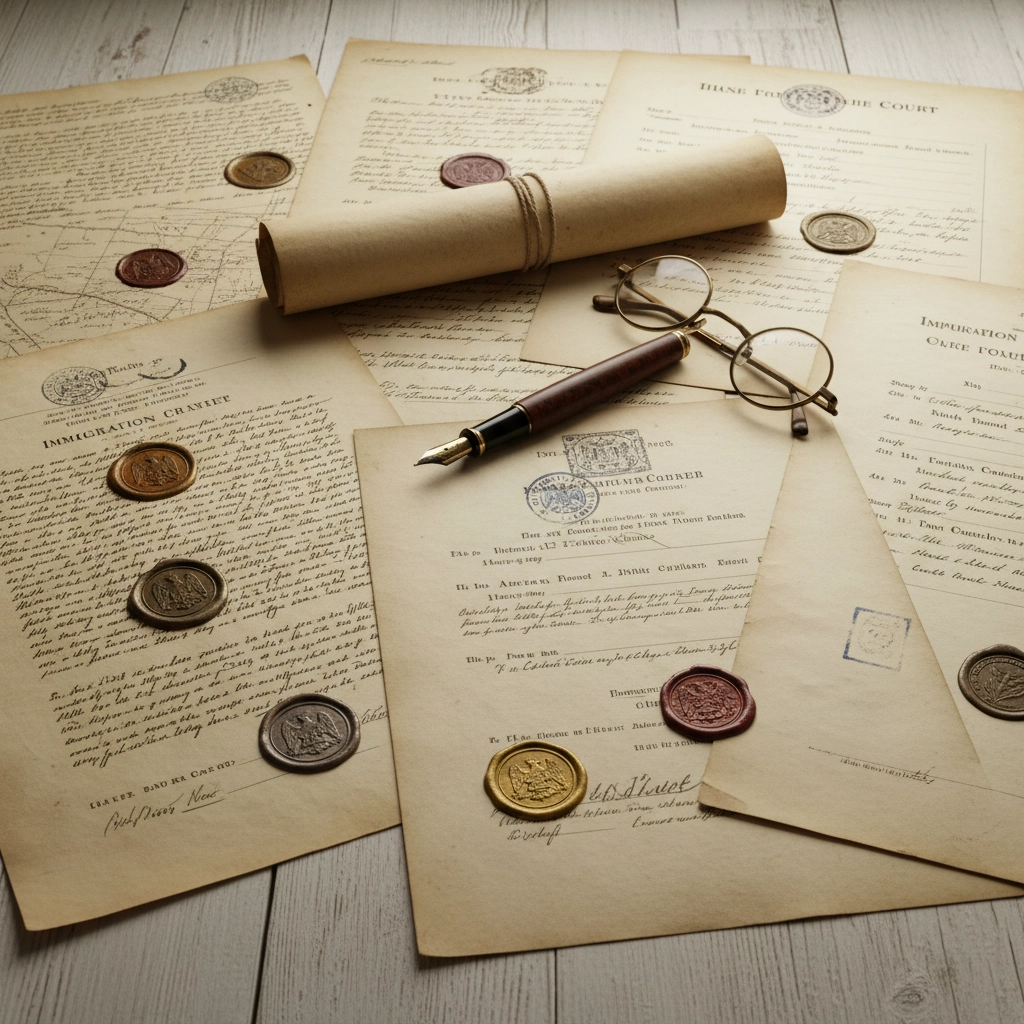
Making Connections Across Collections
One of The Rooms' greatest strengths is how different collections complement each other. A photograph might lead you to a manuscript collection, which could point you toward government records, which might connect to military files. This interconnected approach means your research can grow organically, following the threads of your ancestors' actual lives rather than artificial organizational boundaries.
The Digital Advantage
The beauty of The Rooms' digital approach is that it eliminates geographical barriers. You don't need to travel to St. John's to begin your research: though a visit can certainly enhance your discoveries. The online access means you can explore, make preliminary findings, and plan targeted research strategies before investing in travel or extended archive visits.
This digital accessibility has democratized Newfoundland genealogy in ways that seemed impossible just a decade ago. Researchers from around the world can now explore these collections, contributing to a global understanding of Newfoundland's diaspora and the interconnected stories of families spread across continents.
Your Next Steps
Ready to explore The Rooms Digital Archives? Start by visiting their website and creating your research account. Begin with focused searches based on the gaps you've identified in your family tree. Don't be discouraged if your first searches don't yield immediate results: persistence and creativity in your search strategies will pay off.
Remember, every record and every photograph brings you closer to understanding not just who your ancestors were, but how they lived, what challenges they faced, and what communities shaped their experiences. The Rooms Digital Archives isn't just a repository of old documents: it's a gateway to the stories that shaped your family and, ultimately, you.
The journey of uncovering your Newfoundland roots through The Rooms is more than just genealogical research: it's an exploration of resilience, community, and the enduring connections that bind families across time and geography. Whether you discover a long-lost photograph of your great-grandmother or uncover military records that explain family stories passed down through generations, each find brings you closer to the complete picture of your heritage.
Don't miss our October podcast episode with Craig Morrisey: it's going to be an invaluable resource for anyone serious about Newfoundland genealogy. Until then, happy researching, and may your digital digging at The Rooms reveal the stories your ancestors are waiting to share.
